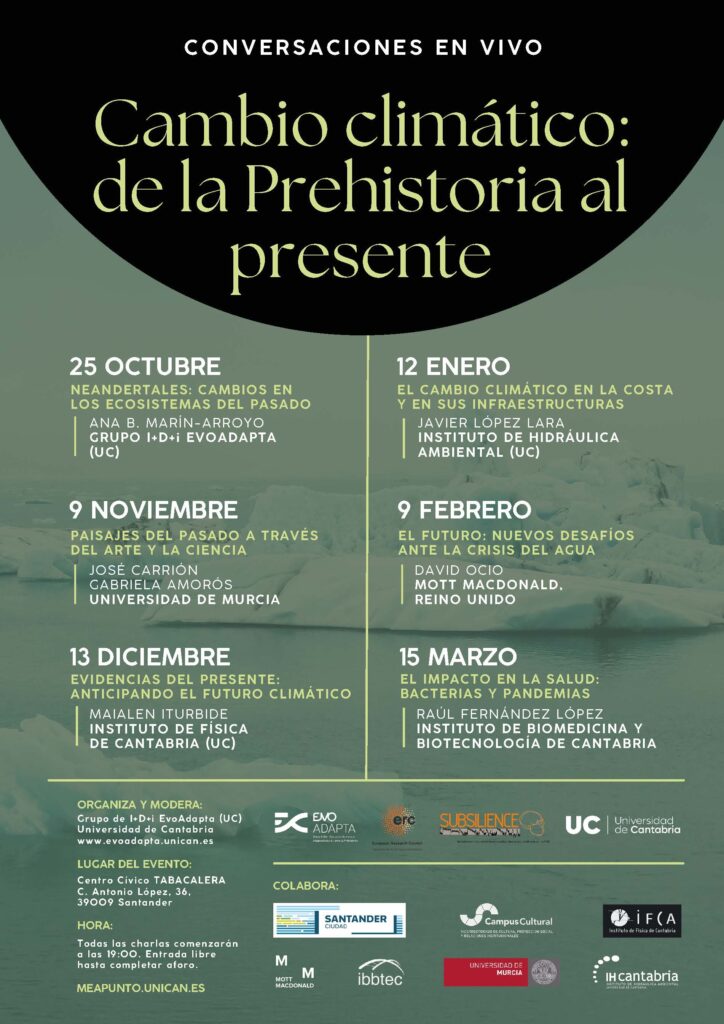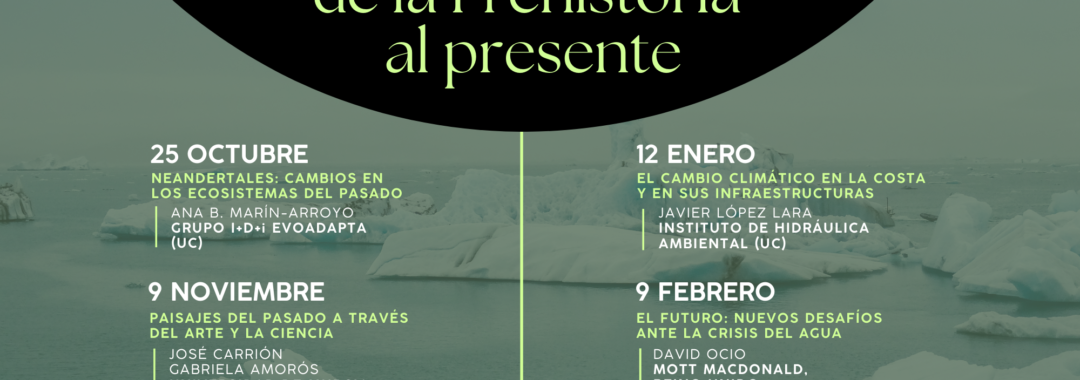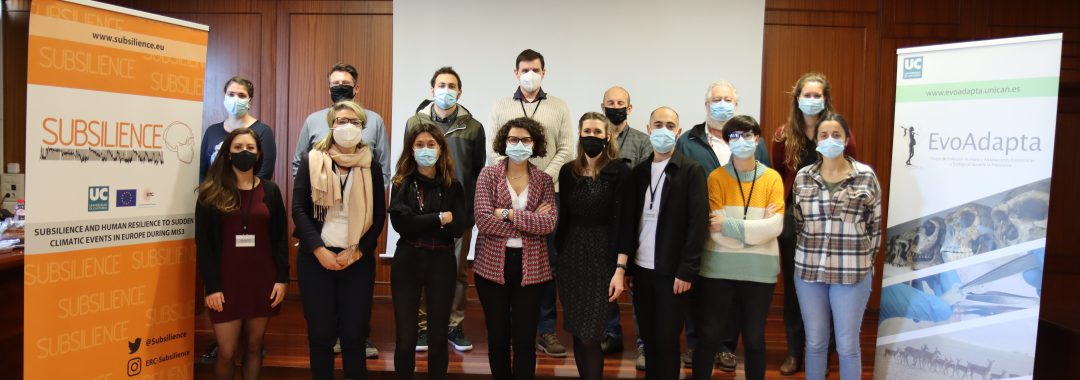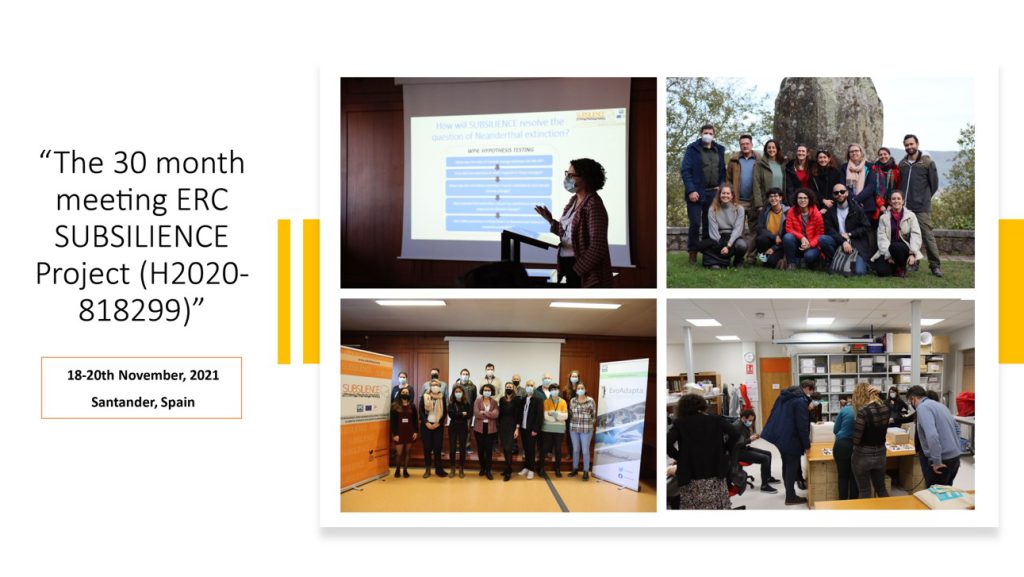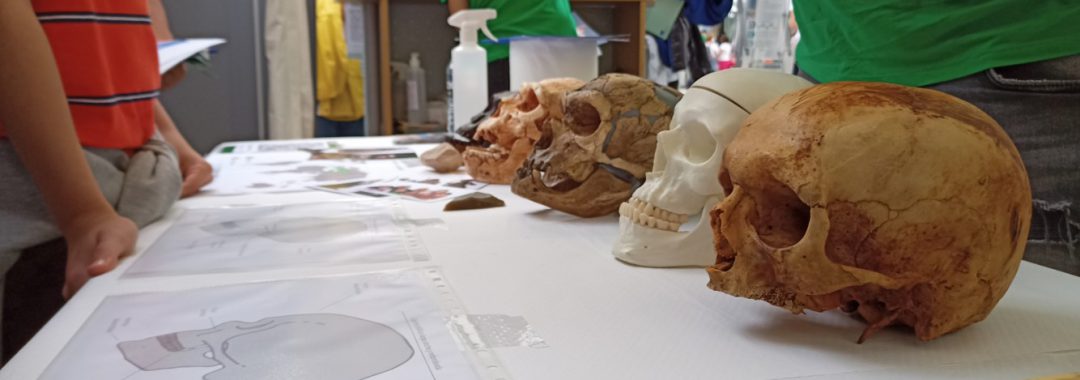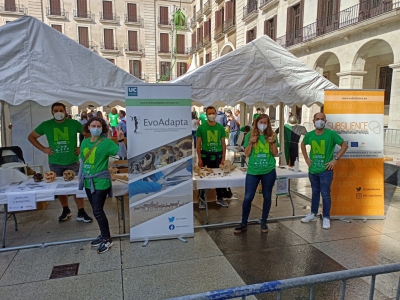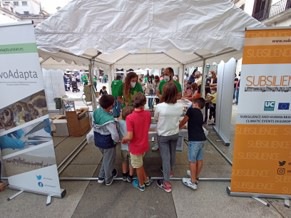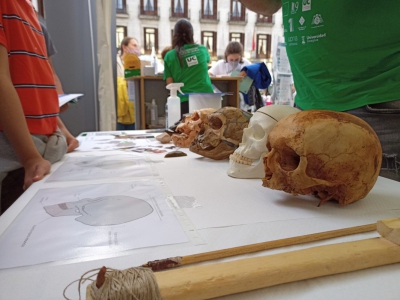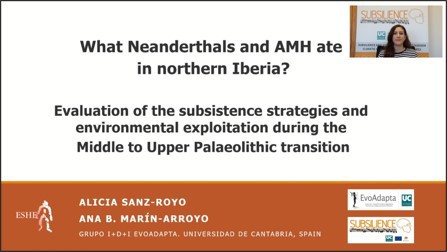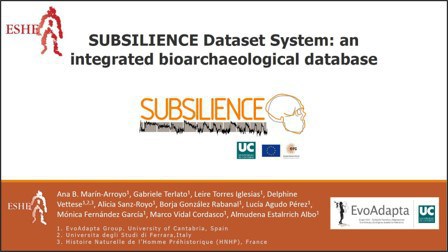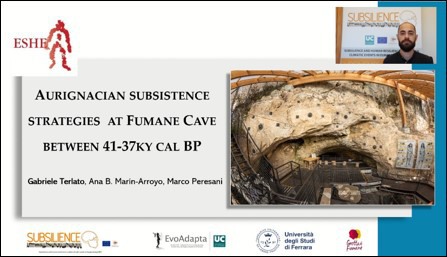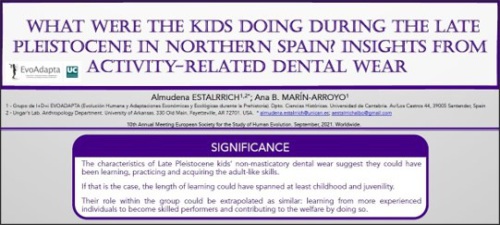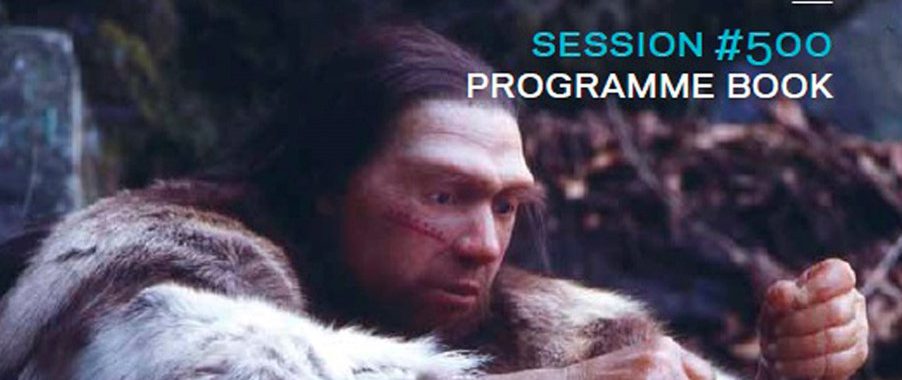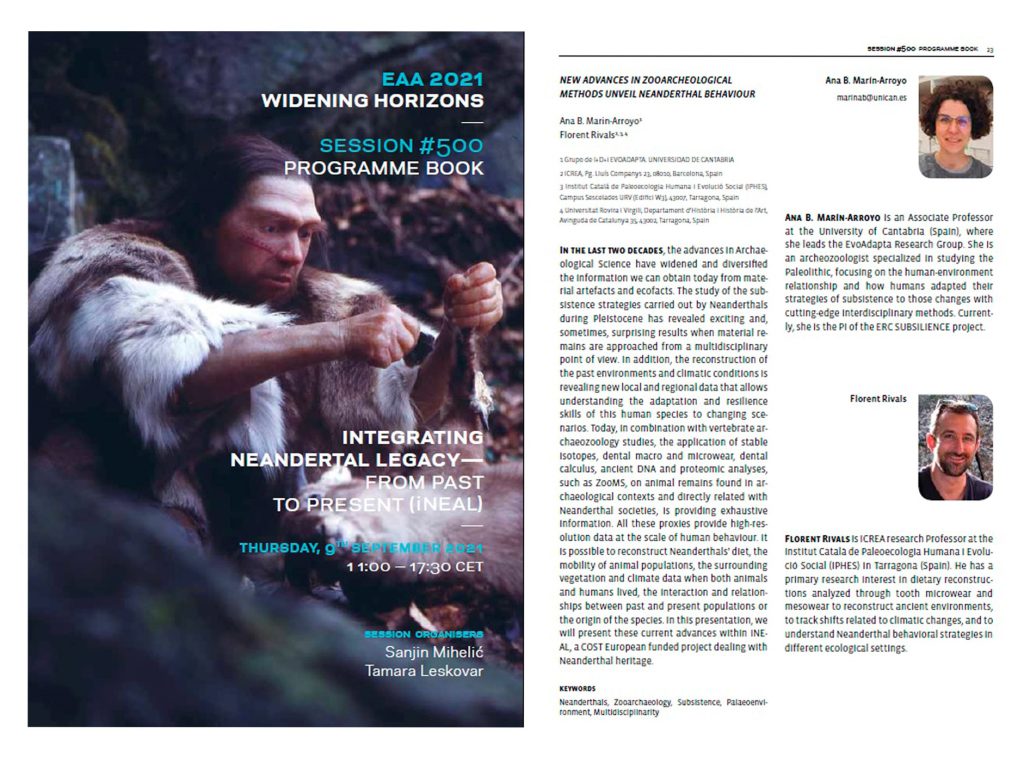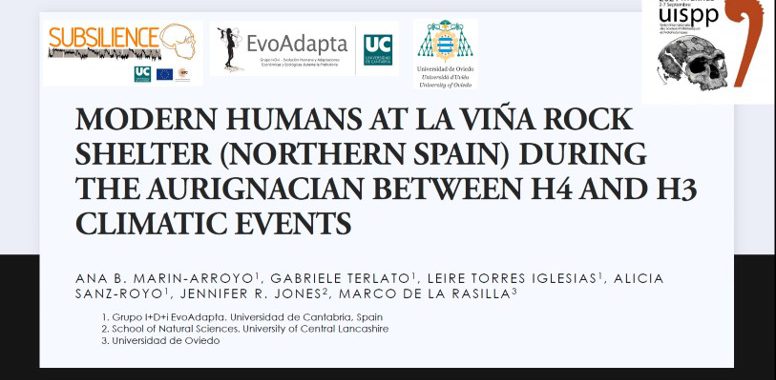The research group of the University of Cantabria, EvoAdapta, organizes and moderates these sessions at the Tabacalera Civic Center in Santander.
Global warming is one of the most important challenges facing humanity and the scientific community today. The increase in Earth’s temperature represents a threat to the environment, biodiversity and the stability of ecosystems. To find out if there were changes in the ecosystems of the past and what future challenges the next generations face, the group of the University of Cantabria (UC), EvoAdapta, organizes a cycle of live conversations that addresses the ‘Climate change: from prehistory to the present’.
In an informative interview format, different scientists will respond to relevant questions about global warming. Through six conversations, structured in blocks, from the past to the present, the causes, consequences and possible solutions to climate change will be explored with the aim of bringing the actions and science of this phenomenon closer to society.
The event will feature researchers from the University of Murcia, the Institute of Physics of Cantabria (IFCA), the Institute of Environmental Hydraulics of the UC (IH), the British multinational engineering company associated with the University of Cambridge, Mott MacDonald, and the Institute of Biomedicine and Biotechnology of Cantabria (IBBTEC). The Santander Tobacco Civic Center and the Santander City Council will host these sessions, which will be held at 7:00 p.m. with free entry until capacity is reached.
FIRST LIVE CONVERSATION
The first session will take place on October 25, led by the Full Professor in Prehistory (UC) and Head of the EvoAdapta R&D Group, Ana B. Marín-Arroyo. Inaugurating the past block, the researcher will focus on addressing the climate changes that occurred in the ecosystems of the species that preceded Homo sapiens: the Neanderthals. Were they able to adapt to climate variability? What were your survival strategies in the face of these fluctuations? Marín-Arroyo will reveal some of the causes that motivated their decline, as well as she will make an x-ray of which animal species coexisted with the Neanderthals, depending on the climatic period in which they were found.
Regarding this species, there are hypotheses and theories that arouse interest within the scientific community and, thanks to her SUBSILIENCE project, funded by the European Research Council (ERC), Ana B. Marín-Arroyo investigates the different ecological environments exploited by Neanderthals in the southern European peninsulas together with a team of international researchers.
FUTURE SESSIONS
Continuing with the past, on November 9, it will be the turn of the scientific paleoillustrator and Doctor in History, Geography and History of Art from the University of Murcia and, member of the ECCE HOMO research group, Gabriela Amorós, together with the paleobotanist and Professor of Evolutionary Botany at the same university, José Carrión. Both will explore the synergies that arise when reconstructing the landscapes of the past through science and art.
Starting the present block, on December 13, the researcher from the Institute of Physics of Cantabria (IFCA), Maialen Iturrioz, will focus on the evaluation of knowledge and the different lines of evidence available in the present to foresee possible scenarios of change climate in the future.
On January 12, climate changes on the coast and its infrastructure will be explored with UC Professor and head of the Climate Risks, Adaptation and Resilience Group of the Institute of Environmental Hydraulics (IHCantabria), Javier López Lara.
Future challenges that revolve around the effects of global warming on water resources and flooding will be presented on February 9 by Civil Engineer and Master in Hydrology, David Ocio. The Engineer currently leads the climate resilience area for the United Kingdom and Europe at the British multinational Mott MacDonald. And, to close the cycle of conversations, on March 15, we will focus on one of the crises of which we have already observed some of its effects. The Doctor in Molecular Biology and researcher of the Intergenomics R&D group of the Institute of Biomedicine and Biotechnology of Cantabria, Raúl Fernández López, will focus his session on the impact of climate change on people’s health and the appearance of bacteria and pandemics.
